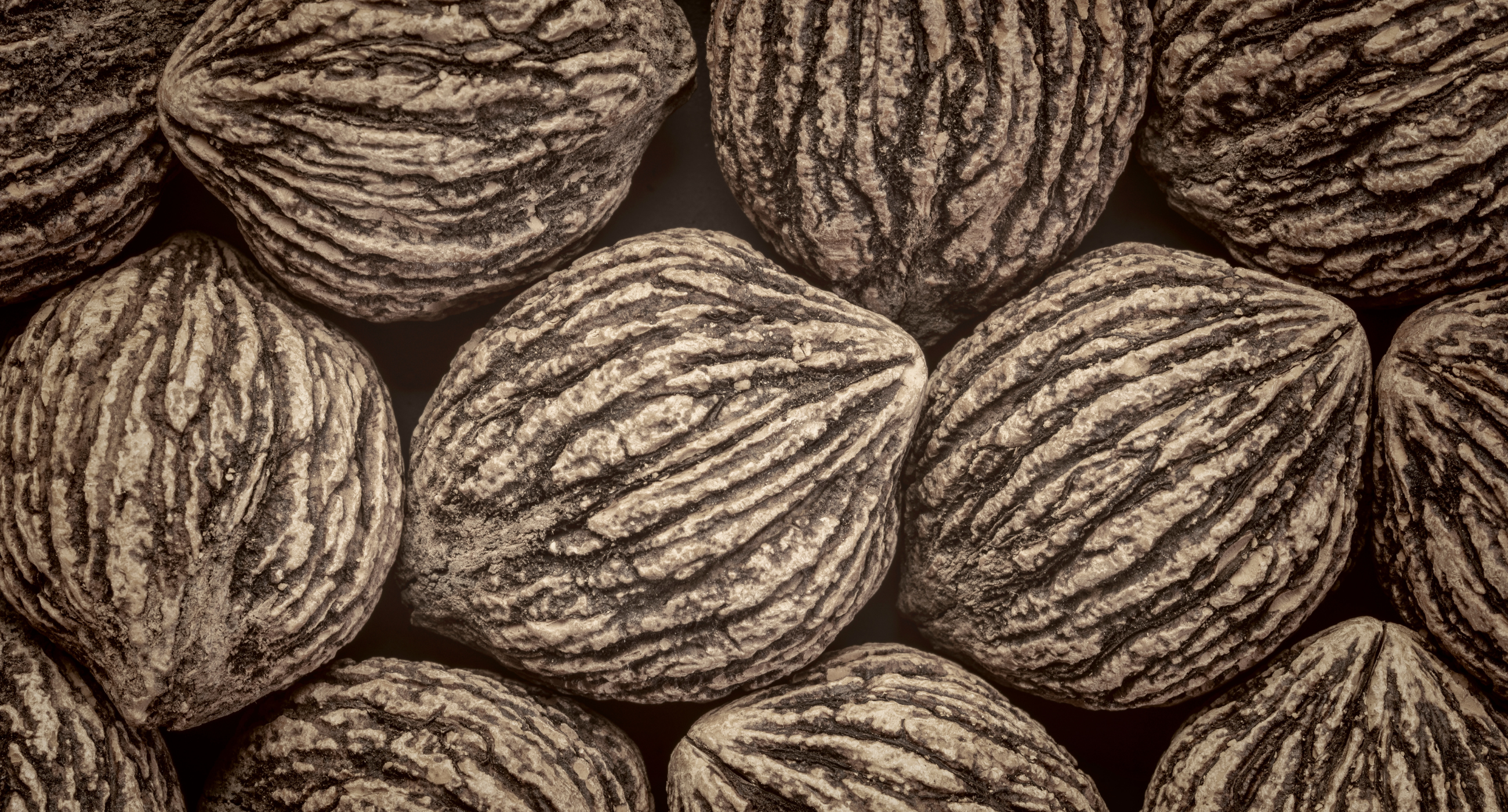
Black Walnut
Scientific Name: Juglans nigra
Herbal Profile: Black Walnut
Scientific Name: Juglans nigra
Family: Juglandaceae
Common Names: Black Walnut, Eastern Black Walnut, American Walnut
Description:
Black Walnut is a deciduous tree native to North America, particularly the eastern and central United States. The tree is known for its dark, ridged bark and broad, spreading canopy. It can grow up to 100 feet tall and has pinnately compound leaves. The fruit of the Black Walnut tree is a large, green, spherical husk that encases a hard, corrugated shell containing an edible seed or nut. The hulls, bark, leaves, and nuts have been traditionally used for various medicinal purposes, but the green hulls of the nuts are the most commonly used part in herbal medicine.
Traditional Uses:
Black Walnut has a long history of use in herbal medicine, particularly for its antifungal, antimicrobial, astringent, and detoxifying properties. Some common traditional uses include:
- Antifungal and Antimicrobial: Black Walnut is renowned for its antifungal properties, especially in treating fungal infections such as athlete's foot, ringworm, and Candida. It is also used for its antimicrobial effects to treat infections, particularly skin and gastrointestinal infections.
- Digestive Health: The herb has been traditionally used to treat digestive issues, including constipation, diarrhea, and parasitic infections. Black Walnut is considered a natural vermifuge, meaning it helps expel intestinal worms and parasites.
- Skin Conditions: Black Walnut has been used topically to treat various skin conditions, including eczema, psoriasis, warts, acne, and fungal infections. Its astringent properties help to tighten tissues and reduce inflammation, making it beneficial for wound healing.
- Detoxification: Black Walnut is used to support detoxification processes in the body, particularly in cleansing the liver and blood. It is often included in herbal detox formulas for its purifying and tonic effects.
- Cardiovascular Health: The nuts of Black Walnut are rich in omega-3 fatty acids and antioxidants, which may help support cardiovascular health by reducing inflammation and oxidative stress.
Active Compounds:
- Juglone: A compound found in Black Walnut hulls with potent antifungal, antibacterial, and antiviral properties. Juglone is believed to be responsible for many of the herb's antimicrobial effects.
- Tannins: Provide astringent properties that help tighten tissues, reduce inflammation, and protect mucous membranes.
- Flavonoids: Contribute antioxidant effects, helping to neutralize free radicals and support overall health.
- Omega-3 Fatty Acids: Present in the nuts, these are beneficial for cardiovascular health and reducing inflammation.
- Ellagic Acid: A powerful antioxidant found in Black Walnut that helps protect the body from oxidative stress and supports liver health.
Preparation and Dosage:
- Tincture:
- Capsules/Tablets:
- Powder:
- Topical Application:
- Decoction:
Safety and Precautions:
- Pregnancy and Breastfeeding: Black Walnut should be avoided during pregnancy and breastfeeding due to insufficient safety data and potential toxicity.
- Allergic Reactions: Individuals with a tree nut allergy should avoid Black Walnut, as it may cause allergic reactions. Discontinue use if any allergic symptoms occur.
- Gastrointestinal Sensitivity: Black Walnut can cause gastrointestinal discomfort, including nausea, diarrhea, or cramping, in some individuals, especially when taken in large doses or for extended periods.
- Liver Conditions: Due to its potent bioactive compounds, Black Walnut should be used with caution by individuals with liver conditions or those taking medications that affect liver function.
- Medication Interactions: Black Walnut may interact with certain medications, including blood thinners and medications metabolized by the liver. Consult a healthcare provider before use if you are on medications or have underlying health conditions.
Conclusion:
Black Walnut is a versatile herbal remedy known for its antifungal, antimicrobial, astringent, and detoxifying properties. It has been traditionally used to treat various conditions, particularly fungal infections, digestive issues, skin conditions, and parasitic infections. While Black Walnut offers many health benefits, it is important to use it responsibly, especially regarding dosage and duration of use. Always consult a healthcare professional before starting any new herbal regimen, particularly if you are pregnant, breastfeeding, have underlying health conditions, or are taking medications.
